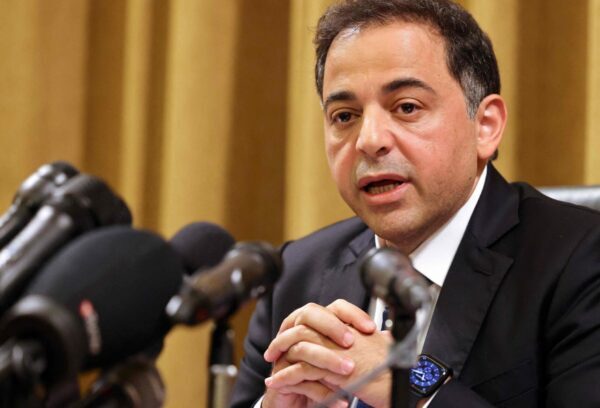Beirut- The first vice governor of Lebanon’s central bank, Wassim Mansouri, is taking over as acting governor after ruling politicians failed to name a successor to Riad Salameh, whose term ends on Monday with the financial system in tatters.
Here are some details about Mansouri, 51:
LAWYER BY TRAINING
He trained as a lawyer and holds two PhDs – one in public law from Montpellier University in France and another from the Lebanese University, according to a biography of him on the central bank website.
He founded his own law firm and worked in several government roles prior to being appointed vice governor – serving at the justice ministry and as a legal consultant to the finance ministry and to parliament in recent years, according to the biography.
SHI’ITE MUSLIM
This will be the first time a Lebanese Shi’ite Muslim has served as governor, a post reserved for a Maronite Christian under Lebanon’s sectarian power-sharing system. Mansouri hails from predominantly Shi’ite south Lebanon.
He is a distant cousin of Parliament Speaker Nabih Berri, who is head of the Shi’ite Amal Movement and nominated him to the most senior of the central bank’s four vice governor roles in 2020.
The three other vice governors are a Sunni Muslim, a Druze, and an Armenian Catholic – all of them approved by the political chiefs representing their respective sects.
TIME AS VICE GOVERNOR
Mansouri was appointed as the first vice governor of the central bank in June 2020 alongside three other vice governors. They sit on the central bank’s central committee.
In his role, he oversaw several departments including cash operations, real estate, and legal. He acted as “alternate governor” when liaising with regional and international bodies.
At a press conference on Monday confirming he would be taking over, Mansouri said the four vice governors tried to alert the government to unsustainable policies even when Salameh was at the helm of the central bank, saying they convinced the government to halt a costly subsidy program.
Lebanon’s economy began to unravel in 2019 following decades of corruption and profligate spending by ruling politicians.
‘BALL OF FIRE’
As the clock wound down on Salameh’s tenure, the four vice governors, including Mansouri, had threatened to resign as a group if they did not receive reassurances from the political class on a list of policies they wanted to pursue.
A source close to Mansouri said he saw the acting governor role as “a ball of fire” given the prolonged economic meltdown.
In the weeks leading up to Salameh’s departure, Mansouri met with officials in the United States, which has always been keen to ensure Lebanon’s central bank enforces measures to combat money laundering and terrorist financing.
A diplomat brief on the visit said U.S. officials had been “reassured” by the meeting.
A U.S. embassy official confirmed to Reuters that Mansouri held “productive meetings with counterparts” in Washington but referred other questions to the central bank.
On Monday, Mansouri called on the government to carry out long-delayed reforms to address the crisis and said he hoped political leanings would not impact monetary policies.
He said he was “extending a hand” to politicians, but also addressed the Lebanese people.
“To Lebanese women and men, allow me to apologize to you again. Once again, an official is coming to you – who tomorrow is meant to be the head of the country’s financial authority – saying he can’t do it alone,” he said.
(Reuters)


Leave a Reply
You must be logged in to post a comment.